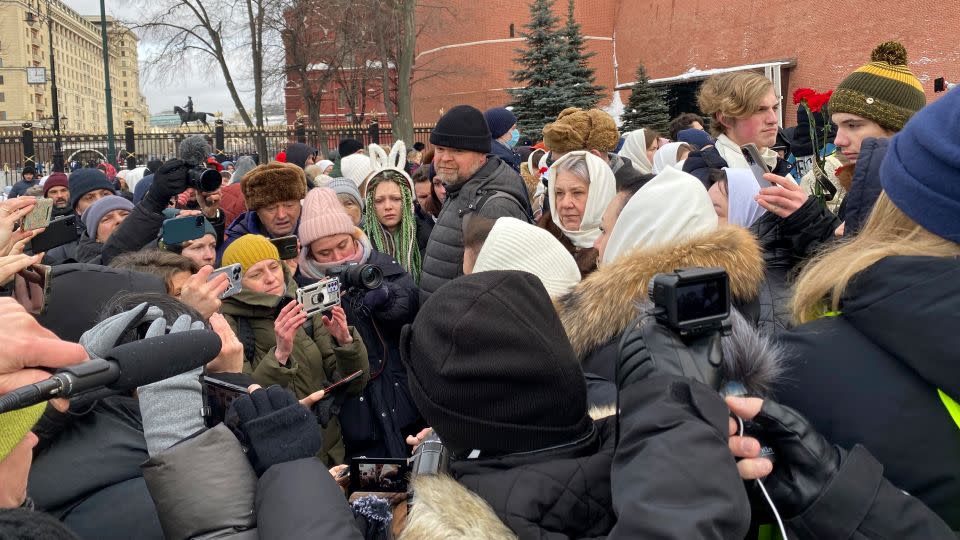Dozens of journalists detained in Moscow as military wives protest mobilization

A number of people, including journalists from foreign press organizations, have been detained in Moscow after authorities cracked down on protesters at Russian President Vladimir Putin’s election headquarters, independent outlets reported Saturday.
The protest was organized by the wives of mobilized men amid a growing movement of women who are demanding that their husbands and sons are returned home from fighting in Ukraine.
Video seen by CNN shows Russian authorities detaining several people wearing “Press” vests near Red Square.
The “500 days of mobilization” rally brought women to the walls of the Kremlin before moving to Putin’s nearby election headquarters, it was reported. The independent Russian news outlet SOTAvision posted on their Telegram channel that a correspondent saw security forces “snatching random people from the crowd, and only men.”
At least 27 people, only one of them a protester, were driven in a police van to Kitay-Gorod station where they are currently being held, according OVD-info, a group that monitors Russian repression. OVD-info said they dispatched a lawyer to visit the detainees but was denied access.
Independent Russian media group Mediazona reported Saturday that among those held are journalists working for Kommersant, France Press and Spiegel, as well as human rights activists.
Another seven journalists covering the rally were taken to the Basmanny police station, OVD-info said. Among them is the representative of the Japanese television company “Fuji” Andrei Zaiko, they report.
One state media employee has since been released from Kitay-Gorod along with three minors, according to OVD-info on Telegram. They said: “Police officers told them that they planned to soon release the rest of the employees of federal and foreign media, but to leave ‘foreign agents’ media representatives in the police station. All detainees also had their phones taken away.”
Russia’s foreign agents law was expanded in late 2022 to include individuals or groups who “received support and (or) is under foreign influence”, criticised as a move by the Kremlin to silence those critical of its war on Ukraine, including journalists.
For more CNN news and newsletters create an account at CNN.com


